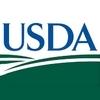DIVA vaccine provides cross-protection against Salmonella serovars in food animals
Current limitations of available Salmonella vaccines include the lack of cross-protection due to serovarspecific protection and interference with Salmonella surveillance programs to identify Salmonella-positive herds or flocks. A major hurdle to overcoming these limitations is the highly variable, immunodominant lipopolysaccharide (LPS) that 1) differentiates the >2,600 Salmonella serovars by their differences in LPS (and flagella), thereby contributing to serovar specific immunity, and 2) is the antigenic focus of Salmonella-specific antibody detection ELISAs for herd level monitoring for Salmonella exposure. To address these limitations, a live attenuated Salmonella enterica serovar Typhimurium vaccine (BBS 866) was designed to dramatically reduce LPS by deleting the rfaH gene, thereby decreasing serovar specific immunity, generating an attenuated strain, and creating a DIVA vaccine (differentiate infected from vaccinated animals). Two vaccine trials were performed in swine. In the first vaccine trial, pigs were administered two doses of the vaccine (vaccination and booster) and challenged with wild-type S. Typhimurium UK1 that causes gastroenteritis. The swine rectal temperatures, plasma IFNγ levels, fecal shedding and tissue colonization with wild-type S. Typhimurium UK1 were significantly reduced in vaccinated pigs compared to mock-vaccinated swine. In the second vaccine trial, pigs were administered a single dose of the vaccine and challenged with virulent multi-drug resistant (MDR) S. Choleraesuis that causes systemic disease in swine. Compared to the mock-vaccinated group, the vaccinated pigs exhibited significantly reduced rectal temperatures, serum IFNγ levels, and tissue colonization. Furthermore, during the challenge period, the isolation of S. Choleraesuis from blood cultures was significantly greater in mock-vaccinated pigs compared to vaccinated swine. In both vaccine trials, the vaccine strain did not induce a serological response to Salmonella LPS and therefore an ELISA can be used to differentiate infected from vaccinated animals (DIVA). Because the Salmonella vaccine was designed to reduce serovar specificity to provide cross-protection against diverse Salmonella serovars, we evaluated its applicability in another food animal commodity, turkeys. The vaccine reduced systemic and intestinal colonization of vaccinated turkeys following challenge with MDR Salmonella Heidelberg. The data from these vaccine trials indicate that the live, attenuated S. Typhimurium vaccine can both protect food animals from Salmonella that cause systemic disease and also reduce the potential for transmission of Salmonella that cause foodborne disease in humans.
Keywords: Salmonella, vaccine, poultry, swine, DIVA.
Abstract presented at the 3rd International Symposium on Alternatives to Antibiotics 2019.















